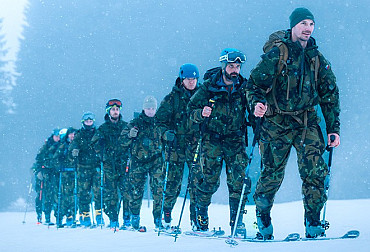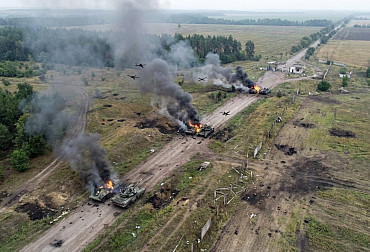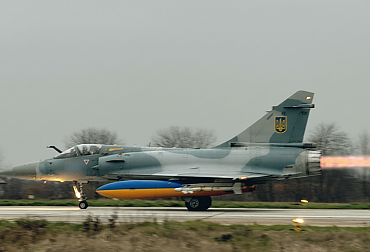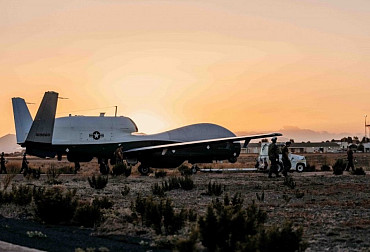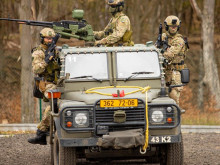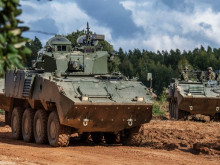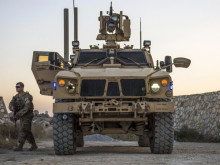Military High School – hope or dead failure?
Bad success. It is also a way how endeavour to establish an affiliated branch of the Military High School in Moravská Třebová could be evaluated. Sokolov isn’t Moravia, where there is typically higher interest in army and military with regard to the local military units, for example, 7th Mechanized Brigade. It isn’t, however, the only problem. The next issue is possible endeavour to decrease standards to attract less capable candidates for study.
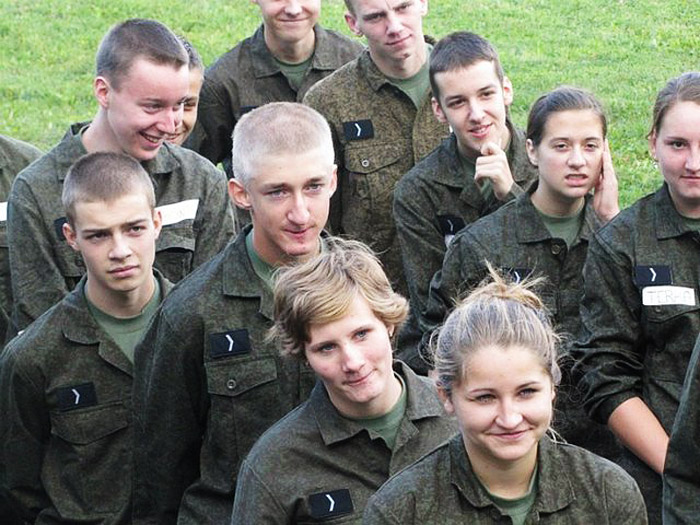
Picture: The military study program in the Integrated High Technical and Economical School in Sokolov had to welcome new students last year. (Illustrative photo) | army.cz
The military study program in the Integrated High Technical and Economical School in Sokolov had to welcome new students last year. But only two pupils were able to pass through the screen of the acceptance tests. The Ministry of Defence explained it by lacking advertising; in one word, according to the defence department’s opinion, it was insufficient propagation. That’s why a massive campaign was started in the same year. This campaign attracted applicants for the study started from basic schools within the POKOS (Czech abbreviation for Preparation of citizen for the defence of the state) action, in the recruitment web-pages of the Czech Armed Forces, as well as within certain public actions. Media informed about steps of the army to achieve the desirable state. Besides of that, a row of politicians, defence representatives and regional officials mentioned the need in military education in this sphere. Additionally, Brigade General Mrs. Lenka Šmerdová said that not only pupils from Sokolov region might study in the Sokolov School, but maybe young people from Ostrava. Splendid idea, especially when the initiating press conference took place just a couple of days before parliamentary elections in October 2017.
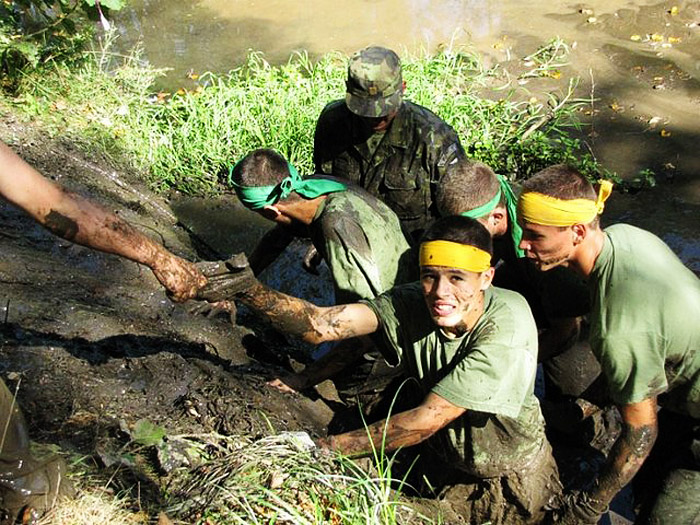
Picture: Brigade General Mrs. Lenka Šmerdová said that not only pupils from Sokolov region might study in the Sokolov School, but maybe young people from Ostrava. (Illustrative photo) | army.cz
Nevertheless, afterwards there a year came when the school should welcome students. However, a number of students who were able to pass the entrance exam screen was less than a number of fingers on one hand. It can be marked as dead failure. The defence department learnt from this, as was mentioned in the introduction of this article, and made its best to improve the current year. Unfortunately, it wasn’t. “We have about eight students by now. The class will be opened if there are fifteen students,“ said General and tried to disperse concerns about physical strength of the future student (including girl students). “My opinion is that their capabilities are not fully dramatical. Provided girls and boys are accustomed to move, there is nothing impossible for them,“ General assured journalists. Nowadays we know that this year’s study program wasn’t completed neither. Till now nobody specified precise data, but as is clear from logical calculation, less than fifteen candidates were successful; thus the minimum number of students to open the study profession wasn’t achieved.
“Unfortunately, we were unsuccessful in taking a necessary number of students,” confirmed regional councillor for education Jaroslav Bradáč. According to him, the roadblock was fulfilment of physical tests. The region, however, according to representatives, has a serious interest in the affiliated branch. Therefore it undertakes steps to improve situation in the next year. “We are not giving up and expecting a statement of Minister of Defence. We met Brigade General Mrs. Lenka Šmerdová and talked about possibilities how we could initiate the school”. As was agreed, we could ease up on physical acceptance tests,” said Deputy Hetman Petr Kubis. His words could have the only explanation. As far as the demand weren’t significantly decreased, classes can’t be opened the next year neither. Is this solution really good?
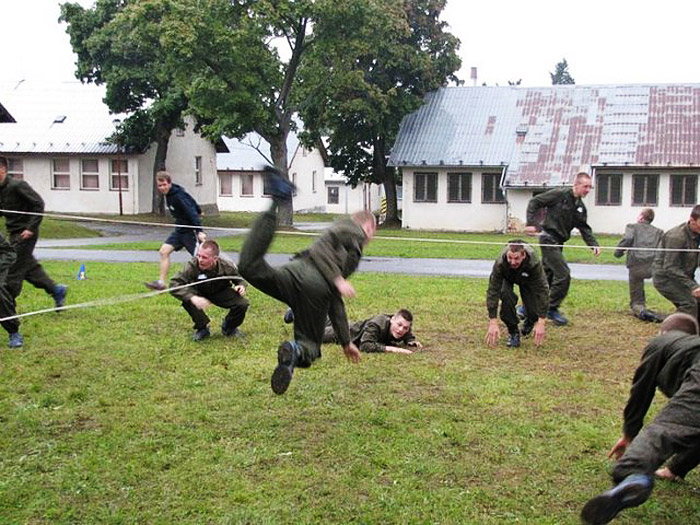
Picture: “Unfortunately, we were unsuccessful in taking a necessary number of students,” confirmed regional councillor for education Jaroslav Bradáč. (Illustrative photo) | army.cz
A possible solution could be to free of graduation subjects and to focus on study fields. The army definitely could utilize them. With regards to the tabular wage politics, there is no need to circuitously think to what measure could be successful to recruit handicraftsmen. After all, it was even confirmed by Councillor Bradáč in interview in Sokolov daily newspaper. “The Army came up with a theme that together with the graduation study program it will be also necessary a study program, which would bring up specialists of handicraft type, which the army is missing,” said.
Let’s hope that the current state just doesn’t reflect a reality when young people - instead of moving outdoor, on open air - just seat at computer, tablets, and have no form of physical activities. After all, a lot of materials mention the generation Y and so-called Millennials. So, the army will have more and more complicated years with regards to the need to recruit and fulfil obligations and according to the Conception of Army Development (KVAČR) till 2025.
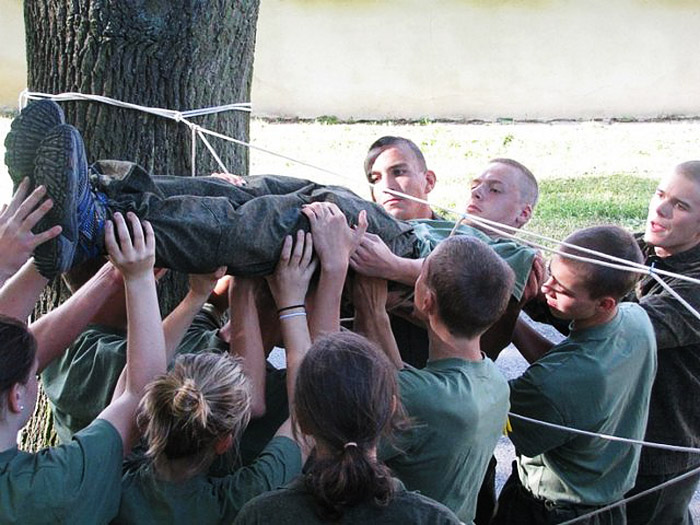
Picture: Let’s hope that the current state just doesn’t reflect a reality when young people - instead of movement outdoor, on open air - just seat at computer, tablets, and have no form of physical activities. (Illustrative photo) | army.cz
Expansion of study programs and bigger encouragement could bring results, as well as involvement of the Czech military industry with regards to the sufficient capacities to achieve necessary practice. Nowadays the army has 6250 officers in Military Police and Military Intelligence Service, of which 31 generals and more than 2100 senior officers, i.e. Mayors, lieutenant-colonels and colonels. The ideal, however, would be if the Czech Army had only five thousands officers. According to KVAČR, the proportion between the soldiers and officers should be balanced similarly as in other armies of NATO, where a half of the soldiery is soldiers and petty officers, 30 per cent are warranty officers and 20 per cent are officers. A support of study programs and recruiting of soldiers to the lowest position has, thus, evidently substantiation.











